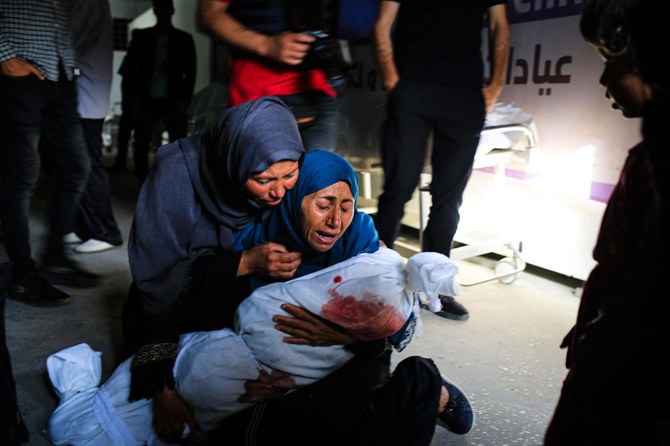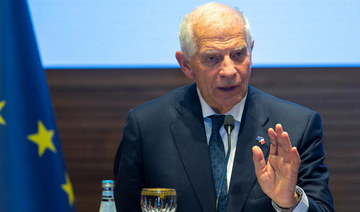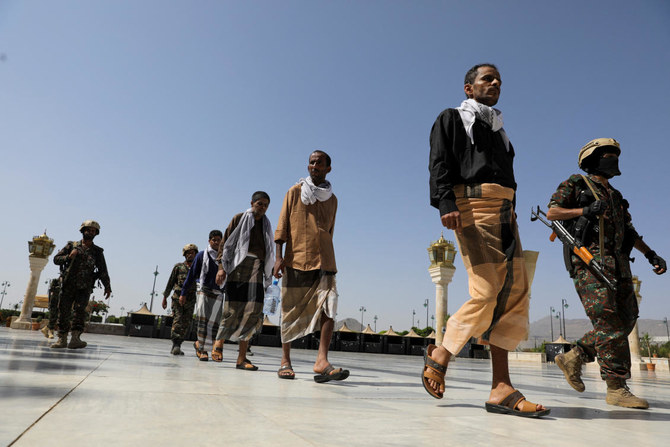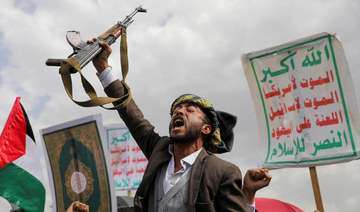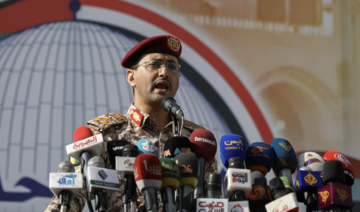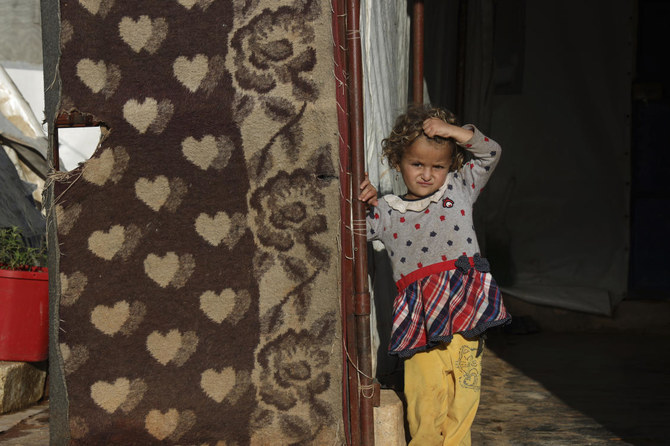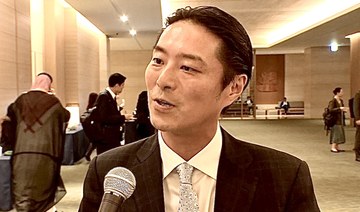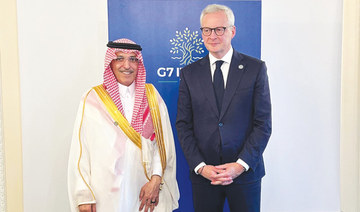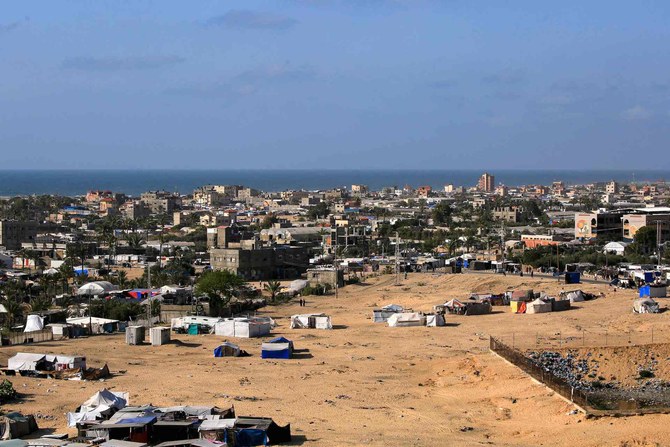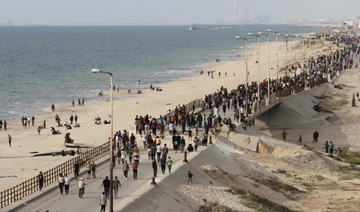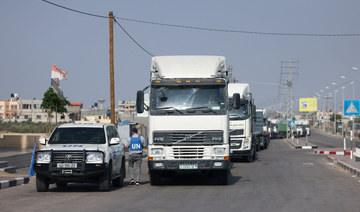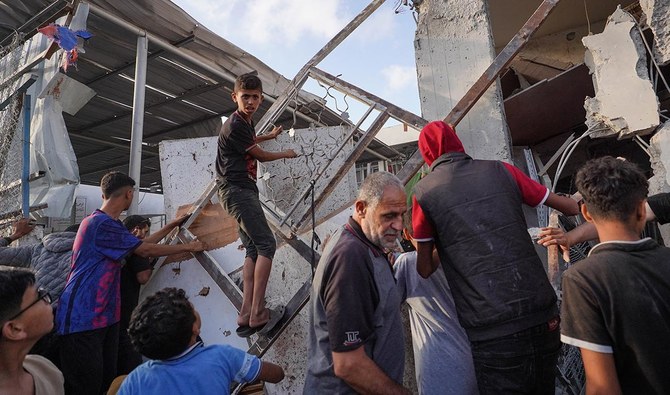DUBAI: From forest fires and landslides to desertification and flooding, the effects of climate change increasingly are manifesting in all manner of destructive ways, laying waste to animal and plant habitats and vulnerable rural communities.
But urban areas not immune to the risks either and, as such, they too are being forced to adapt.

THE FLOATING SEAHORSE
The UN has warned that by 2030 greenhouse-gas emissions need to be reduced by between 25 and 55 percent of 2017 levels. With these figures in mind, developers are exploring innovative ways to reduce the carbon footprint of cities while also improving the quality of life for residents.
Josef Kleindienst is one of them. He is the chairman of Kleindienst Group, the deverloper of the Heart of Europe project that is underway in Dubai. Rather than simply build sustainably, the firm says it aims to change the climate.
The Heart of Europe occupies a section of Dubai’s World Islands, a collection of man-made islands off the coast of the city built in the shape of a map of the world. When complete, it is expected to be be an upscale, eco-friendly resort showcasing the use of the latest technology to mitigate the effects of climate change in urban locations.
According to the developer, Heart of Europe will include, among other things, a cooling, climate-controlled Rainy Street, an outdoor snow plaza and the world’s first floating, smart police station.
“The vision was to create a touristic project while bringing in innovation on these islands,” Kleindienst told Arab News.

GERMANY
“The islands project was launched in 2003, and a coral nursery was built on a structure, producing 100,000 corals a year to plant on our reefs. The interesting part for me is that Dubai always had futuristic visions, and this is pure sustainability.”
According to the developer, sustainability is at the core of the Heart of Europe, which will include more than 500,000 square meters of coral reef, and olive trees from Andalusia in southern Spain.
The project, once operational, will feature sustainable landscaping that is free of pesticides and fungicides, and irrigated with recycled water, says the developer. It will be automobile-free, powered by clean energy and will eventually offer visitors sustainable water transportation.
Solar panels will supply much of the resort’s power requirements, while its water supply will be completely recycled and reused for purposes such as flushing toilets and watering plants, says the developer.
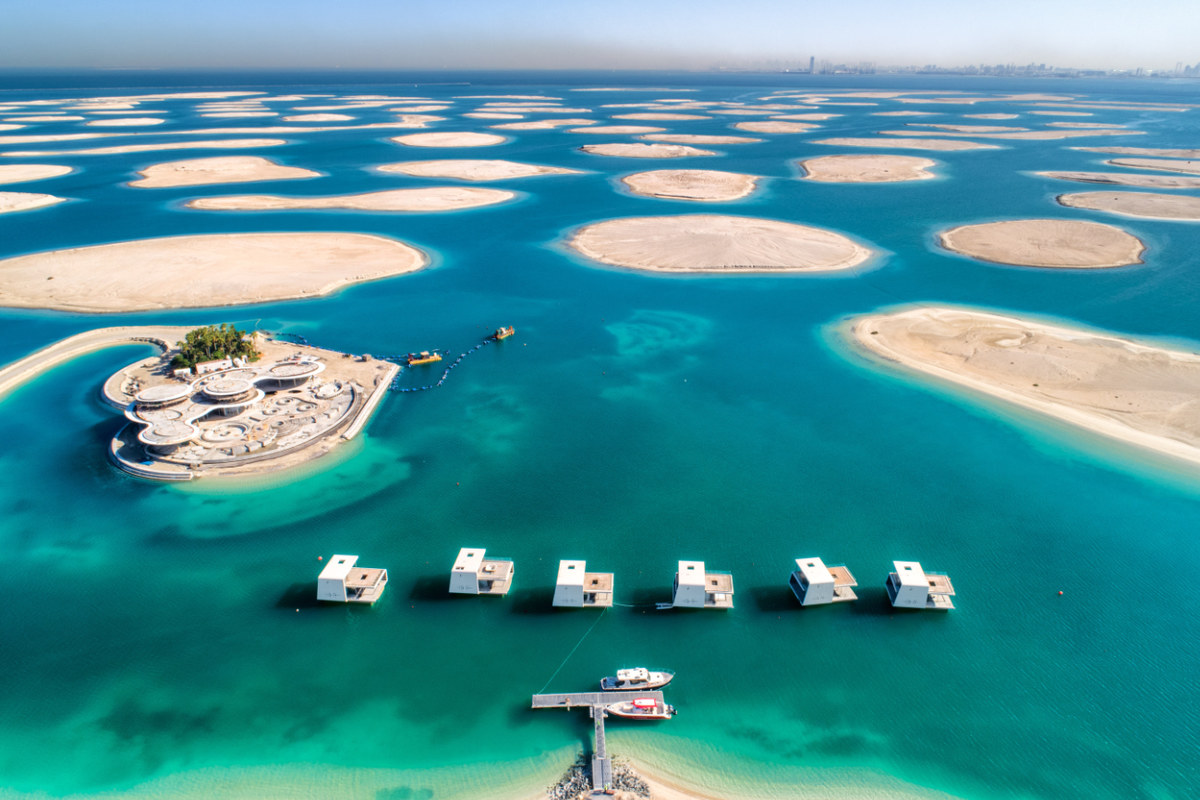
HONEYMOON ISLAND
It adds that, in addition, the Heart of Europe will have zero-discharge and zero-microplastics policies to help protect marine life around the islands, and the wider waters of the Arabian Gulf.
The Coral Institute, an in-house research and development center, has been entrusted with creating new coral reefs, helping to expand the marine ecosystem, and working to rebalance the underwater environment as part of Kleindienst Group’s Corporate Social Responsibility program.
Beginning next year, the institute also plans to regenerate and develop corals from 10 reefs and diving sites around the globe, according to the Kleindienst Group.
FASTFACTS
• The Heart of Europe has a zero-discharge and zero microplastics policy to ensure the protection of the Arabian Gulf and marine life.
• It is powered by solar and hydro fuels, has pesticide and fungicide free landscaping, a car-free environment, and recycles water.
In 2018, the Organization for Economic Cooperation and Development published a report on the megatrends that are shaping the future of tourism. It said sustainable tourism is a growth area that will radically change the industry. Tourism is a resource-intensive human activity, it said, yet it can play a pivotal role in driving the transition to a low-carbon and resource-efficient economy.
“Due to its cross-cutting nature and close connections to numerous sectors, even small improvements will have important impacts,” the report said.

MARBELLA
“It will become increasingly important for governments and industry to work together in a proactive approach to ensure the sustainable development and management of attractions for the benefit and enjoyment of local communities and tourists.”
Countries, cities, islands and other destinations that fail to embrace the sustainability trend will most likely lose business, because consumers are growing increasingly concerned about the environment, it added.
“Dubai has been looking to do this since 2003, because they added a zero-discharge regulation on these islands,” Kleindienst said. “We are not allowed to discharge anything that could pollute the air or the water. This is as sustainable as it can be if you want to protect the environment.”
One of the novel innovations in the Heart of Europe development, according to Kleindienst, is the Rainy Street, a 1km thoroughfare that uses sensor-controlled technology to generate precipitation that helps to provide visitors with a comfortable climate even during scorching summer temperatures that can surpass 50 degrees Celsius.

COTE D’AZUR
Along the street, which will host shops, restaurants and bars, an ambient air temperature of about 27 degrees Celsius will be maintained through the using of state-of-the-art technology that can literally control the outdoor climate.
“We invited consultants and specialists from around the world to bring us solutions,” Kleindienst said.
“The Fraunhofer-Gesellschaft Institute in Germany is number one when it comes to building these technologies, which use water and remove humidity from the air. When the temperature goes above 27 degrees Celsius and humidity hits 60 percent, it releases rain.”
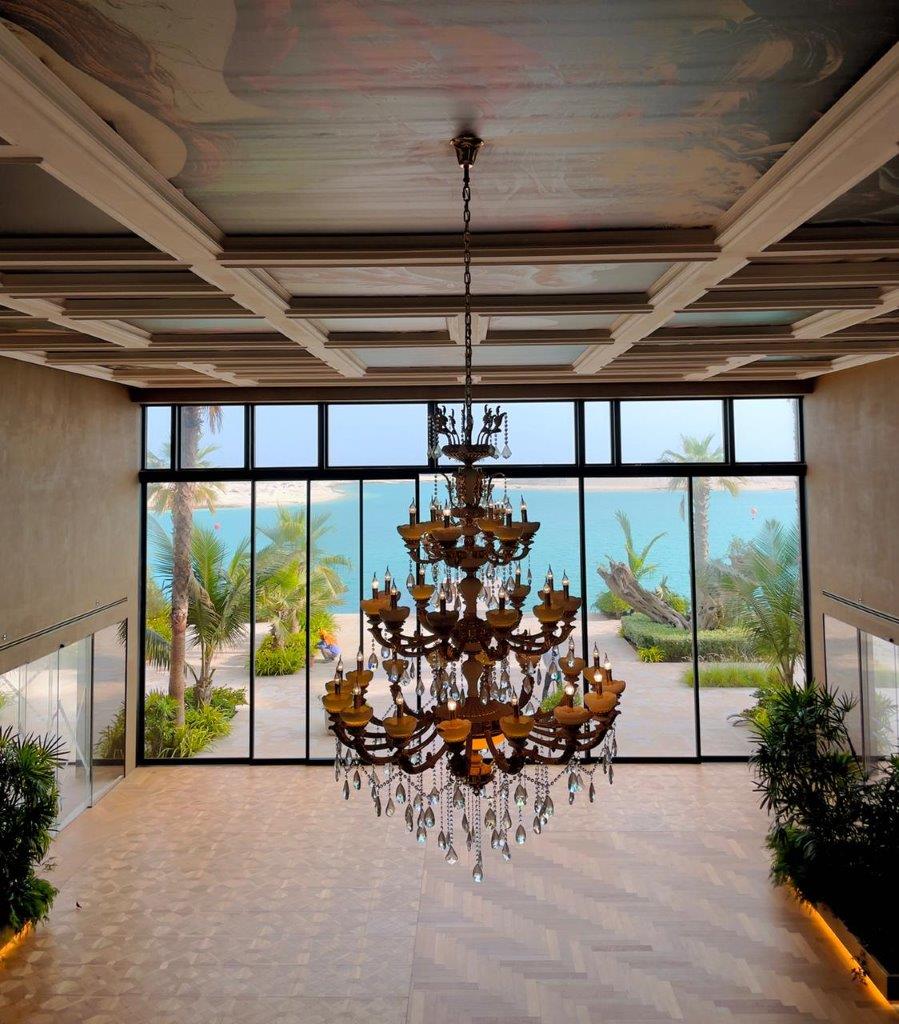
PORTOFINO
Another climate-control innovation is the snow plaza, according to the Kleindienst Group. It uses a similar concept to the air conditioning systems used in malls, which cool water to 5 degrees Celsius to create cool air. By further reducing the water temperature to 2 C, snow can be generated.
“We started working on the technologies in 2008 and we’re now ready,” Kleindienst said. “It took over 4 years (just) to develop, test and optimize the technology required to achieve the vision for the masterplan. We tested it on the hottest days in the middle of summer and it works — it will come from a piping system, just like in the movies.”

MARBELLA
The Heart of Europe’s initial soft opening began on Oct. 28 with the connection of all utilities. About 300 technical tests will be carried out over the course of a month and, if all goes to plan, it will soon begin to welcome guests at a reduced capacity ahead of its full launch with opening of the Monaco boutique hotel. But Dubai could be just the start.
“We have been invited to Saudi Arabia and Egypt to discuss projects there, but our goal is to complete this project first before discussing expansion,” Kleindienst said.
COP26, the UN Climate Change Conference, which took place in Glasgow, Scotland, this month, has once again highlighted the importance of issues such as sustainability and conservation. Kleindienst said his company is rising to the challenge.

SWEDEN
“We should take care of the environment,” he added. “We didn’t know how fast climate change would come and how significant the impact would be on our lives.
“We must bring back the planet, the climate and nature to how it was before, and sustain it for our children and their children. It’s a big obligation for us.”
In line with the growing trend toward sustainability, eco-friendly tourism projects are being launched across the region. The Hatta Sustainable Waterfalls in Dubai, for example, is due for completion at Hatta Dam by November next year. The falls will collect water, recycle it and pump it back to the top of the dam.
Saudi Arabia, meanwhile, launched the Sustainable Tourism Global Center last month. The global travel and tourism sector is responsible for about 8 percent of global greenhouse-gas emissions, and the Kingdom has therefore prioritized support for the sector to help accelerate its transition to net zero.
“(These emissions are) expected to grow if we don’t act now,” Ahmed Al-Khateeb, Saudi Arabia’s minister of tourism, said at the official launch of the center.

THE FLOATING LIDO
“Tourism is also a highly fragmented sector; 80 percent of businesses in tourism are small and medium-sized enterprises who rely on guidance and support from sector leadership. The sector must be part of the solution.”
The Kingdom is working with global partners that prioritize tourism, small and medium enterprises and the climate to create a broad coalition that can lead the tourism industry’s transition to net zero, he added.
“By working together and delivering a strong joint platform, the tourism sector will have the support it needs. The STGC will facilitate growth while making tourism better for the climate, nature and communities,” Al-Khateeb said.




